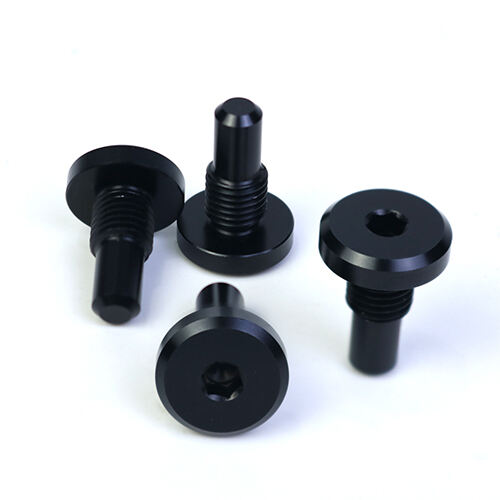Revolutionary CNC Machines Drive the Future of Manufacturing: The Hottest Trend in 2025
April 9, 2025 – In the ever-evolving world of manufacturing, the CNC machine has become the hottest technology of the year, transforming industries worldwide. From automotive and aerospace to medical and consumer goods, companies are flocking to invest in CNC (Computer Numerical Control) technology to meet the demand for precision, speed, and cost efficiency. With advancements in automation, smart technology, and versatile capabilities, CNC machines are now taking center stage as the backbone of modern manufacturing.

Why CNC Machines Are Dominating the Market
The surge in demand for CNC machines is being driven by the need for high-precision manufacturing. Unlike traditional methods, CNC machines offer unparalleled accuracy, speed, and repeatability, ensuring that each product is crafted to exact specifications without the variability that manual processes often produce. This means fewer defects, reduced material waste, and faster production times.
What’s Driving the Hot-Selling Trend in 2025?
Several key factors are contributing to the explosive growth of CNC machine sales in 2025:
1. Automation and Efficiency
The rise of automation has reshaped how factories and production facilities operate. With CNC machines, manufacturers can achieve high levels of efficiency with minimal human intervention. These machines run continuously, increasing output and reducing labor costs while maintaining consistency and precision.
2. Advanced Technology Integration
Smart features like IoT connectivity, AI-based monitoring, and real-time data analysis are taking CNC machines to the next level. These advanced features allow operators to optimize performance, predict maintenance needs, and minimize downtime, further boosting factory productivity. Companies are increasingly relying on CNC machines to drive Industry 4.0 initiatives, integrating digital solutions into their manufacturing operations.
3. Versatility Across Industries
From aerospace and automotive to medical devices and consumer electronics, CNC machines are incredibly versatile. These machines can handle a wide range of materials, including metals, plastics, and composites, making them essential for industries that require complex and precise parts. This versatility has made them indispensable in producing everything from engine components to surgical instruments.
4. Customization and Personalization
With rising consumer demand for customized and bespoke products, CNC machines are also allowing manufacturers to quickly adjust to changing customer preferences. Whether it’s producing unique designs for furniture, personalized components for electronics, or tailor-made medical devices, CNC technology provides the flexibility to meet this demand for high-quality, individualized products.
The Economic Impact of CNC Machines
The shift toward CNC machines is also having a positive effect on the global economy. As manufacturers embrace CNC technology, the cost of production decreases, and factory efficiency improves, leading to higher output and increased profitability. For small and medium-sized businesses, CNC machines offer a way to scale up production without significant overhead costs, opening up new business opportunities and market access.
Moreover, CNC machines contribute to sustainable manufacturing by reducing material waste and energy consumption. The ability to use resources efficiently and reduce environmental impact is becoming a priority for businesses that aim to meet stricter environmental regulations and appeal to eco-conscious consumers.
What’s Next for CNC Machines?
As CNC machines continue to evolve, we can expect even more sophisticated capabilities to emerge. The integration of AI, machine learning, and enhanced software solutions will allow CNC machines to work smarter, adapting to new materials and production techniques with ease. Industry experts predict that these machines will soon become more accessible to smaller businesses, democratizing access to high-tech manufacturing tools and further fueling industry growth.
With the rise of additive manufacturing, 3D printing, and hybrid CNC machines, the future looks bright for those investing in CNC technology. The ability to combine traditional cutting with 3D printing in a single machine will open up new opportunities for rapid prototyping and more efficient production cycles.
Conclusion: A Smart Investment for the Future
2025 is shaping up to be a pivotal year for CNC machines, as industries worldwide continue to embrace automation and digitalization. By providing high precision, faster production times, and the flexibility to meet diverse customer demands, CNC machines are not just a passing trend—they are the future of manufacturing. Whether you're a small shop looking to scale up or a large corporation aiming to streamline your processes, investing in CNC technology is a decision that will pay dividends for years to come.
Don’t get left behind—now is the time to invest in CNC machines and take your manufacturing capabilities to new heights.


